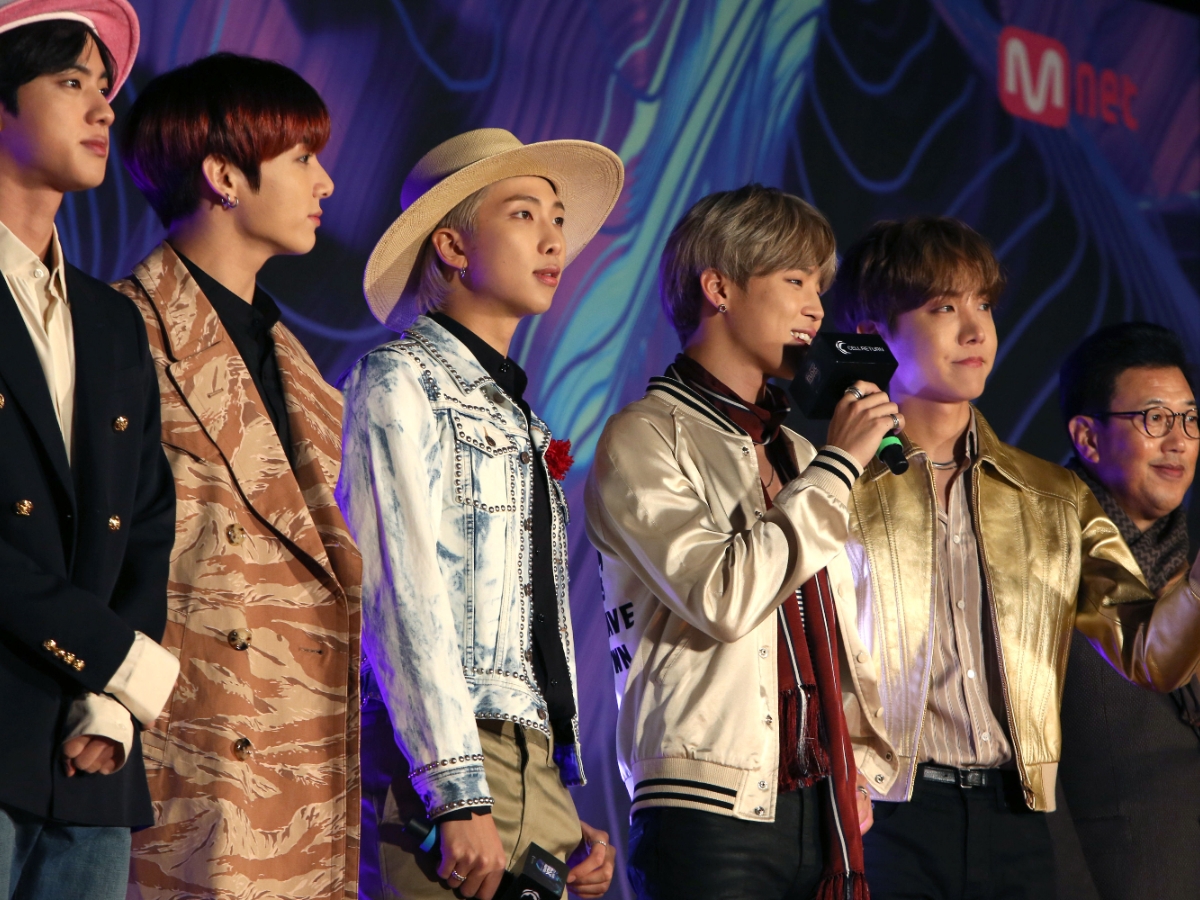With their red coloured, diplomatic passports, handed over to them by the South Korean President – Moon Jae In, the largest band in the world- BTS, attended the 76th United Nations General Assembly. Youth all around the globe were eagerly waiting for them to deliver their speech of hope for a better future. The presence of a K-Pop group on one of the biggest stages of the world can be seen as a representation of soft power through cultural diplomacy.
But how did it all start?
Let’s move back to 30 years in the past. The year is 1992, three young men are performing for a television talent show. The language is unfamiliar but the sound is new with American hip-hop and rap. The crowd goes wild however the judges are dissatisfied. As a result they are eliminated.
Could the judges be any more wrong with their decisions?
In the next few days , the song- I Know climbs up the top of the charts. That night the group- Seo Taeji and Boys ignites a revolution and K- Pop is born. Well, Hallyu, a chinese term which translates into Korean wave doesn’t only include K-Pop but K-Dramas, K-Beauty, K-Fashion and many more.
The most important factor that paved the way for Hallyu was the lifting of bans on foreign travel in the 90s. This gave them the opportunity to explore the Western countries, mainly the US and the European countries.Some moved to pursue their education and these western educated Koreans brought with them new perspectives of doing businesses, new interpretations to art, cinema and music and innovative forms of expressions. This gave birth to an immense pool of fresh and highly qualified talent.
During that time, Korea went through a financial crisis and borrowed a huge loan from the IMF. They neither had tourism nor global investments. At that time the country was dependent on their chaebols who were highly diversified conglomerates. They were in a ‘do or die’ situation- if they failed,Korea would fail. Their then president pushed them towards their information-technology sector and cultural sector and believed them to be an important export product worth billions of US dollars. One of their famous results is Samsung.
Back to present
K-Pop and K-Drama has been a prominent subculture among the GenZ and Millenials for a few years. Korean food is also a crucial part of this wave. With their wide range of instant noodles- Ramen has become a favourite dish among the youth. K-Beauty and Korean fashion has also found its way in our hearts. Games like PubG were a part of any gamer’s daily routine. Another popular impact is the use of the Korean Finger Heart which is widely used by teenagers to show their love.
Korean-American families are increasingly playing the lead in mainstream global releases — Searching and To All The Boys I’ve Loved Before being some of the recent examples. Many Youtube creators have started following the trend of Mukbang, which translates into an eating show.Parasite became the highest-grossing South Korean film in 2019, gaining $258 million worldwide.‘Parasite’ then went on to win four Academy Awards including Best Picture, Best Director and Best Original Screenplay.
K-Dramas are widespread across streaming services. There are at least 80 K-Dramas ready to watch on Netflix UK alone. Some of the popular K-Dramas include K-Pop idols as having a career in acting is quite common alongside their existing career in music; Hwarang being one of them. It stars Kim Taehyung, a member of BTS and Choi Minho, a member of Shinee, which added to the overall success of the show as it makes it more known due to the popularity and fame of the K-Pop idols.
When the entire world was struck with the deadly virus, BTS released their global chartbuster- DYNAMITE. Their first English song is estimated to have contributed 1.4 billion US Dollars to the economy of the Republic of Korea. Deprived of outings, the youth was forced to spend time on their screens. During this time K-Pop had a huge psychological impact on the mental state of the youth.
In times of despair and anxiety, these feel good songs lighted up their world. The genre’s influence can be measured by their popularity with week-long online concerts, attracting millions of viewers across the globe.
Ever since the genre’s introduction to American audiences in early 2010, the number of foreign university campuses across South Korea has increased significantly. Even language, which once seemed like a barrier to entering Korean culture, is now viewed internationally as an exciting learning opportunity. Every other GenZ kid knows what ‘Saranghae’, ‘Annyeong’, ‘Borahae’,’Gwenchana’ mean. Language learning apps like Duolingo have seen a spike in the number of Korean learners in the last few years.
The rise of K-pop has greater cultural resonance than meets the eye. Through its reach, records and aesthetics, the skyrocketing K-pop movement manages to connect people through a shared love of music and cultural diversity.
The ‘I · SEOUL · U’ brand and slogan was developed as a form of tourism attraction for Seoul which created a buzz of entertainment among many people to explore the city of Seoul. Their collaboration with BTS encouraged a number of people to visit their country.
When asked, two out of five students are studying to move out to South Korea, to live in the country of their favourite ‘Oppas’ and ‘Eonnies’ and love to feed on jajangmyeon, ramyun, gimbap and tteokbokki. Korean webtoons or mangas are equally popular among the teens. Some of which are also being converted into popular dramas like What’s wrong with Secretary Kim, Sweet Home ,Nevertheless, True Beauty etc.
However, the country’s economy depends on bigger industries rather than their cultural segment. With companies such as Kia, Hyundai; the country’s automobile industry is the fifth largest producer in the world.
However, it is clear that K-Pop and K-Drama are making a major contribution to the South Korean economic system. According to the Korea Foundation for International Cultural Exchange, the “Korean Wave” of K-Pop, TV dramas, and games contributed USD 9.5 billion to the Korean economy in 2018.

